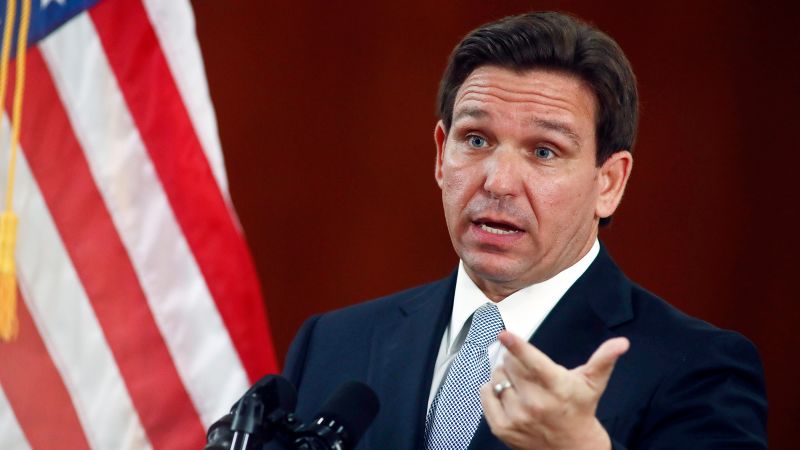Florida Governor Ron DeSantis signed a bill that amends the state’s law to limit the number of books and classroom materials that can be challenged in school districts. The bill goes into effect on July 1 and states that Florida residents without children in a school district may only object to one material per month. Parents with children enrolled in a school district are not limited in the number of challenges they can file.
DeSantis acknowledged that some school districts in Florida may have gone too far in removing titles from classrooms. In the first half of the 2023-2024 school year, Florida had the highest number of book bans compared to other states. A report by PEN America found that there were 4,349 instances of book bans in multiple states, with 3,135 of those bans impacting 11 school districts in Florida.
Escambia County Public Schools in Florida had over 1,600 cases of book bans and is facing a lawsuit related to the removal of books. DeSantis has called on the Department of Education to prohibit bad actors from politicizing the book review process and depriving students of an education. Despite the numerous book removals in the last school year, DeSantis denies that Florida bans books in schools but acknowledges that some people have abused the process.
Legislation signed by DeSantis in 2023 restricts sexual education and classroom instruction on sexual orientation and gender identity in grades Pre-K through 8th. The law allows parents and citizens to petition for the removal of books and instructional materials containing “pornography” or describing sexual conduct. School districts are responsible for handling objections and providing resolutions. Residents have objected to a number of books since the law went into effect, leaving schools to determine restrictions or removal.
PEN America’s Freedom to Read program manager expressed concern over the findings of book bans targeting narratives about race, sexual identities, and sexual content. Florida leads in the number of book bans, followed by states like Wisconsin, Iowa, and Texas. Books discussing sex, abortion, rape, race, racism, and LGBTQ+ themes are among the most censored, with claims of sexually explicit or obscene content. There is inconsistency in legal definitions of sexually explicit content, leading to confusion about what is allowed.
The trend of book bans is broad, harsh, and undermining the education of students across the country, according to PEN America. DeSantis continues to insist that Florida does not ban books in schools, but acknowledges that the process has been abused by some individuals. The battle between parents wanting books removed and those advocating for their availability at school board meetings remains a contentious issue in Florida. Teachers and educators in the state struggle to navigate laws expanding parental rights in schools.













